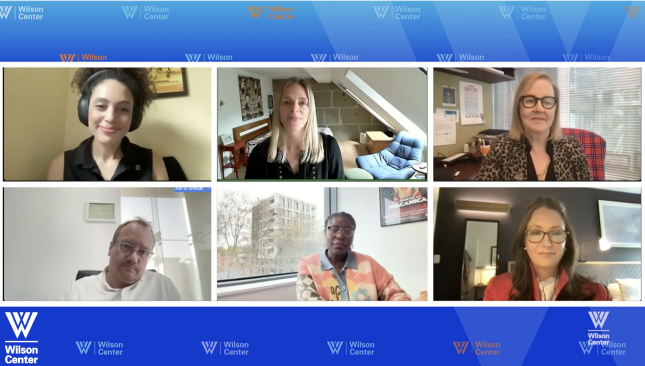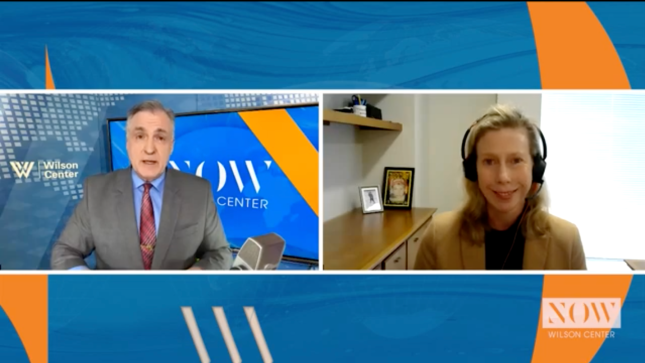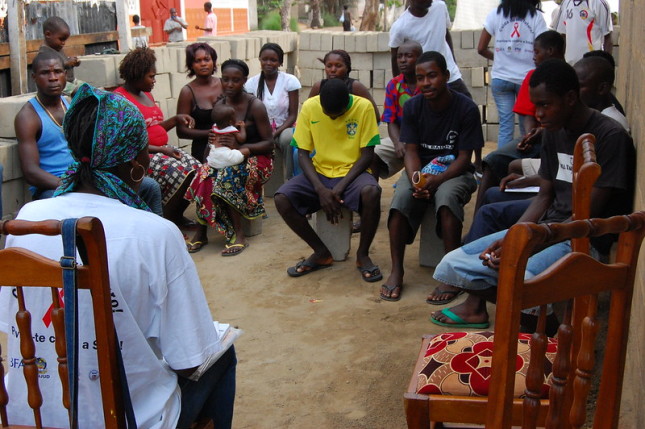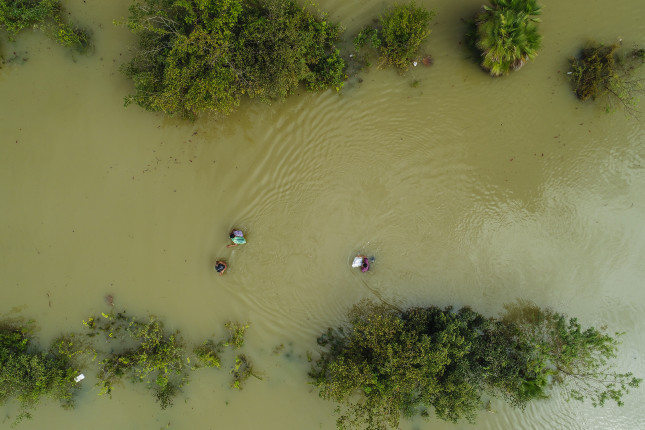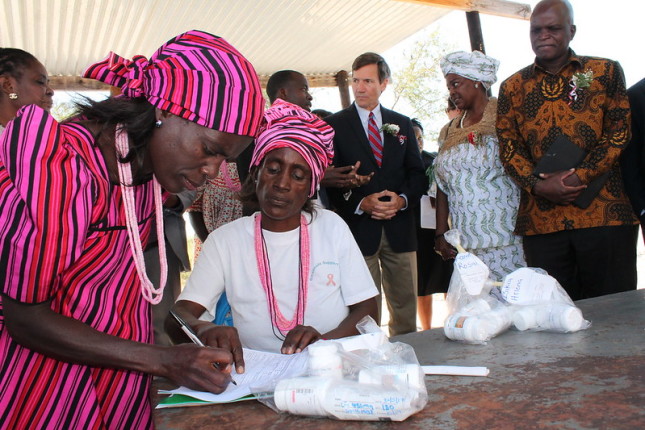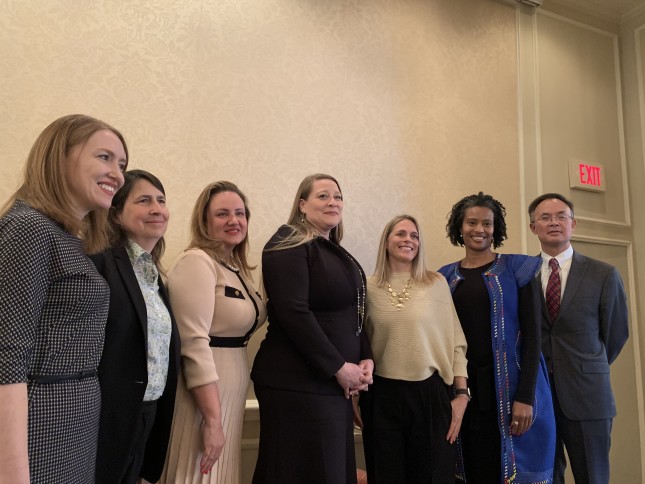-
Me Care, We Care: How Self-Care Strengthens Maternal and Newborn Health
›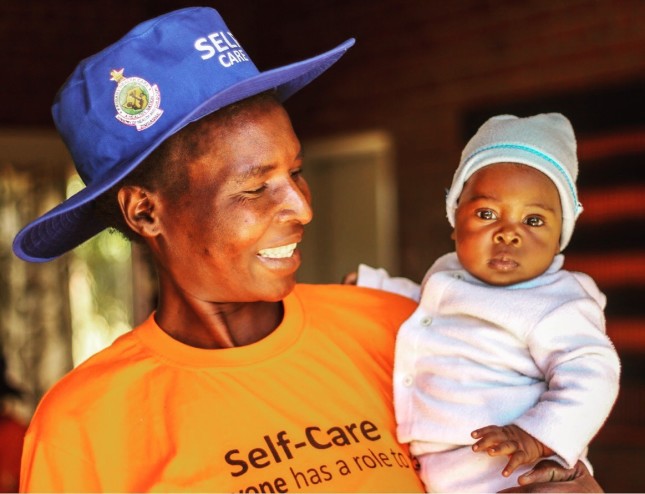
A recent report on global maternal mortality by the World Health Organization (WHO) reveals a hard truth: the world has been ignoring the needs of pregnant women. While there have been substantial reductions in maternal death rates since 2000, progress has stalled or been reversed in some countries after 2015, even before COVID-19 exacerbated the situation. Nations affected by humanitarian emergencies, conflicts, and other crises fared the worst.
-
Why We Must Include Pregnant People in Clinical Trials: The Case of the COVID-19 Vaccine
›
Of the more than 4 million pregnant people in the United States annually, 90 percent report taking at least one medicine during pregnancy, and about 50 percent receive the influenza or tetanus toxoid/reduced diphtheria toxoid/acellular pertussis (Tdap) vaccines. Yet 69 percent of clinical trials conducted in the United States explicitly exclude enrollment of pregnant people.
-
8 Billion and Counting: Rethinking Rhetoric on Population and Choice
›
The United Nations Population Fund (UNFPA) 2023 State of the World Population (SWOP) Report offers a chance to reflect on what’s at stake in debates over global population. “The question is not whether the human population is too large or too small. The question is whether everyone can exercise their fundamental human right to choose the number and spacing of their children,” said Sarah Craven, Chief of the Washington Office of UNFPA at the virtual D.C. launch of the report at the Wilson Center on April 26, 2023.
-
Gender Equality and Health Equity Through Foreign Policy: A Progress Report
›
In this edition of Wilson Center NOW, Gender Equality and Health Equity Through Foreign Policy: A Progress Report, John Milewski, Moderator of the Wilson Center NOW series, interviews Valerie Percival, Wilson Center Fellow and Associate Professor at the Norman Paterson School of International Affairs (NPSIA) at Carleton University and a Commissioner with the Lancet-SIGHT Commission on Peace, Justice, and Gender Equality for Healthy Societies. Percival and Milewski discuss the role of gender equality and health equity in achieving social and political progress, and the importance of these topics in conversations about foreign policy. Percival also explains her project at the Wilson Center, titled “Promoting Gender Equality and Health Equity through Foreign Policy: Panacea or Fool’s Game?”
-
Integrated Health Security Depends on Primary Health Care—and Engaging Men
›
USAID’s primary health care (PHC) partnership—which was announced in late 2022—brings new momentum to a long-neglected reality: Robust PHC is necessary for robust global health security (GHS). But it has taken some time to fully recognize this fact.
-
Addressing Climate Security Risks in Central America (Report Launch)
›
Northern Central America is experiencing a confluence of insecurity and migration challenges that are increasingly intertwined with climate change. What are the contours of this emergent convergence—and how can responses be developed and implemented more effectively?
-
Sustaining PEPFAR’s Success through Integration, Equity, and Inclusion
›
It has been two decades since President George W. Bush launched the U.S. President’s Emergency Plan for AIDS Relief – or PEPFAR, and a recent Wilson Center event to celebrate the anniversary demonstrated that its impact as one of the most successful global public health programs is indisputable. Since its inception, PEPFAR has invested more than $100 billion in the global fight against HIV and AIDS, resulting in more than 25 million lives saved and millions of new infections prevented.
-
Healthy Women, Healthy Economies: Translating Evidence to Impact
›
“Women’s economic participation promotes economic growth and security. It’s good for the women involved. It’s good for the girls who dream of following in their footsteps,” said Ambassador Mark Green, President and CEO of the Wilson Center at a recent Women’s History Month private event in Washington, DC hosted by the Wilson Center and EMD Serono, the healthcare business of Merck KGaA, Darmstadt, Germany.
Showing posts from category global health.



